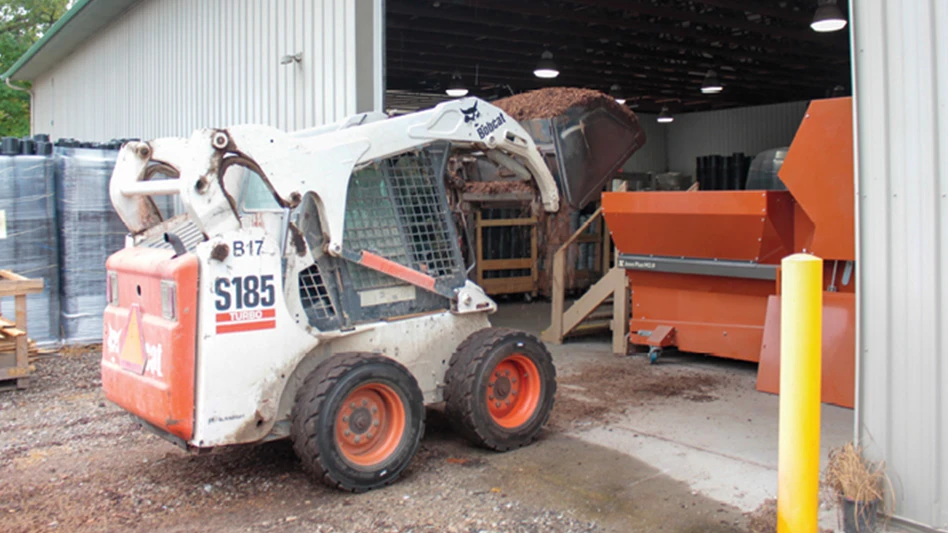
Growers, garden centers and consumers pay a price when patented and trademarked plants are counterfeited and sold illegally. Therefore, a group of plant patent and trademark owners and stakeholders gathered at the Mid-Atlantic Nursery Trade Show (MANTS) on Jan. 10 to discuss reports of unlicensed propagation of patent-protected plants in the United States.
Although illegal propagation has been a recurring issue, it appears to be on the increase in recent years. The group met to share ideas for addressing the growing problem. Attendees represented a cross-section of stakeholders; propagators and growers of trees, shrubs, perennials, fruiting plants, grasses, roses and other ornamentals. Among the businesses represented were J. Frank Schmidt & Son Co., Bailey Nurseries, Spring Meadow Nursery, Greenleaf Nursery Company, Chicagoland Grows, Jackson Nursery, Pleasant Run Nursery, Inc., and Star Roses and Plants.
The U.S. Plant Patent system benefits consumers and the industry by encouraging the development of new and better plant varieties. Patent protection also provides an avenue for breeders to make a living breeding plants and to recoup their development costs through the collection of royalties from licensed growers.
U.S. Plant Patents provide the breeder or patent holder with 20 years of exclusive protection from date of filing. Plant patents are infringed upon by others who asexually propagate the patented plants without a license and by those who use and/or sell unlicensed plants and plant parts.
Trademarks are helpful to both companies and consumers. Trademarks indicate the legitimacy of a product. They tell us the source and expected quality of the product. Nurseries and plant breeders also adopt trademarks for their new varieties because their use assures plant buyers that they are getting the quality they are expecting.
The unauthorized use of trademarks is a form of counterfeiting and undercuts consumer confidence. Trademarks can be unregistered (common law) or federally registered in the United States. Trademark owners use a ™ symbol for unregistered marks and a ® symbol for federally registered marks. Both types are legally valid. The unauthorized and/or improper use of a trademark can be trademark infringement and is a serious offense. In some cases, infringement of a federally registered mark is a crime.
The stakeholders who met at MANTS encourage everyone in our industry to play by the rules. In addition to taking initial steps to address the issue of unlicensed propagation and the unauthorized use of trademarks, the group plans to work together in educating everyone involved in the green industry as well as the general public about the benefits and importance of plant patents and trademarks.Latest from Garden Center
- Leading Women of Horticulture: Emily Showalter, Willoway Nurseries
- Garden Center 2025 Top 100 IGCs List open for submissions with new judging criteria
- Meet the All-America Selections AAS winners for 2025
- AmericanHort urges exclusion of sphagnum peat moss from proposed Canadian tariff
- VIDEO: Garden Center's 2024 State of the Industry Report
- The Growth Industry Episode 2: Emily Showalter on how Willoway Nurseries transformed its business
- Farwest Show calls for 2025 New Varieties Showcase entries
- Oregon Nurseries Hall of Fame member Jack Bigej passes away





